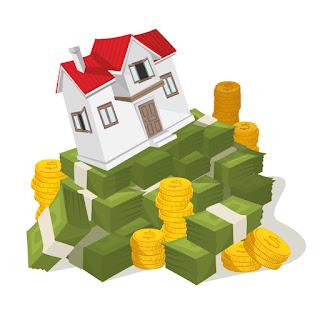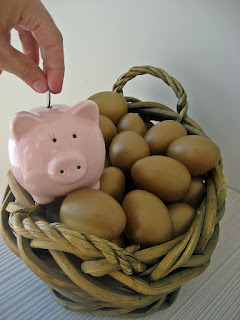#33 Increasing the Value of Your Home-Prt 2
We have previously discussed
some of the challenges you, as a new homeowner, encounter when striving to
increase the value of your home over time.
So much depends on appearance – the structure itself, the grounds, the
adjacent neighboring property, the general neighborhood and the community
overall. The setting alone greatly
influences perceptions of value.
While we all know the old
adage: Don’t judge the book by the
cover, we often do just that! The general perception of value is probably
50% presentation and 50% arithmetic – and perception of value is 100%
subjective! The external presentation
of a property carries a lot of weight and determining its value is connected to
its neighbors.
Going inside the house and
considering ways to increase the overall property value through internal
improvements presents very specific considerations. Some improvements are made for convenience,
some for fun, some to accommodate special needs or requirements; others may
involve trends. So, it’s also important
to look at your motives when making certain improvements.
All things being equal
concerning external presentation, there are benefits and risks when making
changes within and connected exclusively to the home itself. If you have no plan – even remote – to move,
and your improvements are solely personal to your own taste and appreciation,
then, enough said -- a lot of benefit and little or no risk!
It is quite another matter
when the motive for internal improvements, additions, and other changes is the
hope of significantly higher value because you intend to sell. That’s where it becomes very important to
know what is happening in your immediate neighborhood, the greater community and
your Residential region’s property value patterns.
“Over-improving” to the point
where it might be questionable for you to recapture significant expenditures at
re-sale, is a serious issue. Professional
guidance, authentic statistics and dependable value projections are available
to you in order to achieve your intentions and avoid serious financial errors.
Some internal improvements are greatly influenced by
one’s
own personal
tastes and preferences! And, that’s
fine if you
do not intend
to sell. Otherwise, that might be a mistake!
It
won’t hurt to
consider the best choices from the perspectives
of those in the
know: residential architects and interior
designers,
general contractors and experienced real estate
agents. They will be well informed concerning what
home
buyers are currently
looking for at the time you are
projecting your
resale, and want to make some selling price
improvements
before going on the market.
Assuming that you have done
the research, gotten some good guidance and are ready to make improvements for
the reasons mentioned above, there are other important considerations! Advisors may have given you some
guidelines concerning just how much more your asking price can be increased and
still be on target for a successful sale.
The improvements you have in mind should fall within those cost increase
guidelines. Before you decide to cancel
one aspect or another from your plan (because it would put you above a
reasonable dollar amount) investigate the many options concerning materials,
alternative solutions and revisions.
Again, consulting with the industry pros is a wise investment.
Then, take a look at keeping
your risks to a minimum. Uncle Harry
might be a great guy who has been puttering as a handyman for years. But when you are trying to enhance your value
in order to get the best return on your investment dollar, professionals are a
better choice. (Yes. It won’t be as cheap as Uncle Harry, but it
could make the bottom line difference to a prospective buyer’s critical eye.)
Making sensible – and
successful – decisions on a home bought partly with the intention to improve
and sell, will help and enhance your financial profile when you apply for
subsequent mortgage loans!




Comments
Post a Comment